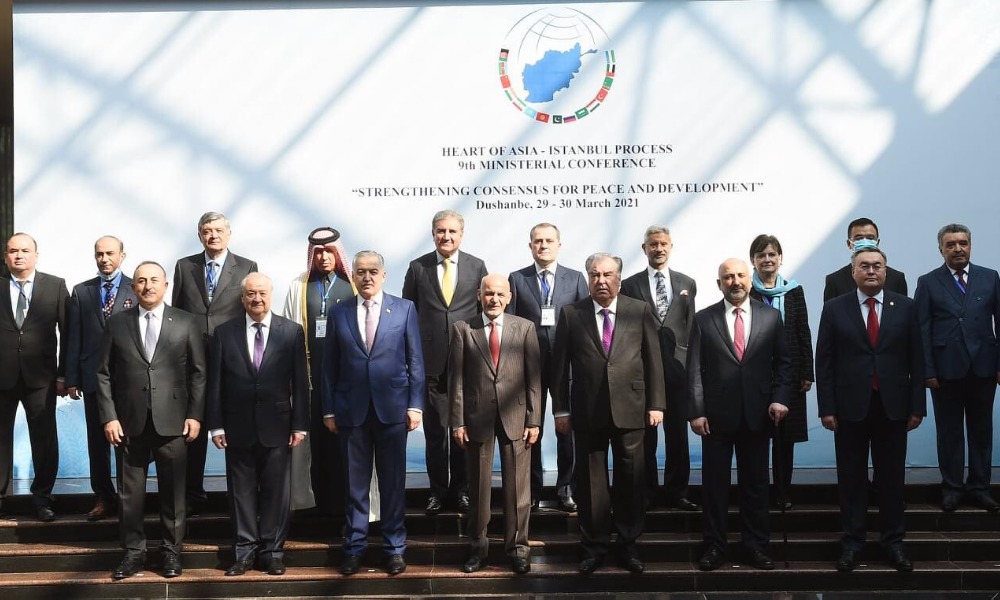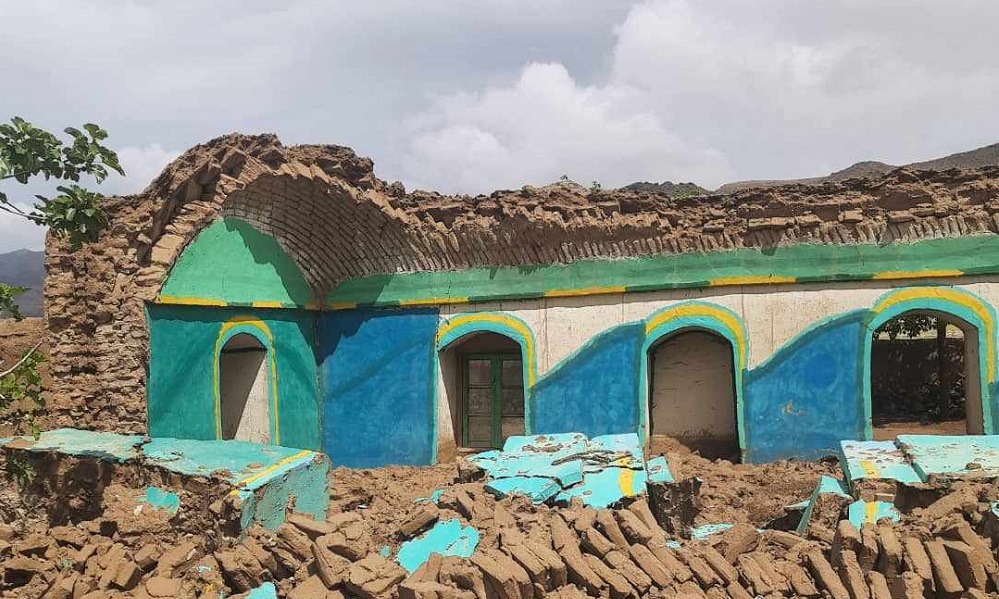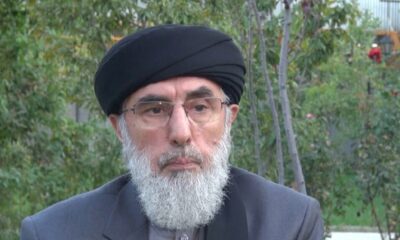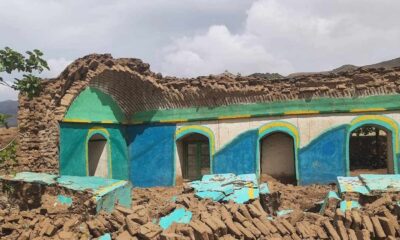Latest News
Regional ministers discuss need for peace at Dushanbe summit

India’s External Affairs Minister S Jaishankar addressed delegates at the 9th Heart of Asia-Istanbul Process Ministerial Conference in Dushanbe on Tuesday and pointed out that a “double peace” was need – peace within the country and peace around the country.
Focusing in on three key points, Jaishankar said: “For a durable peace in Afghanistan, what we need is a genuine ‘double peace’, that is, peace within Afghanistan and peace around Afghanistan. It requires harmonizing the interests of all, both within and around that country.”
He also stated that if the peace process is to be successful, “then it is necessary to ensure that the negotiating parties continue to engage in good faith, with a serious commitment towards reaching a political solution”.
According to him all parties to the conference “are striving for a more inclusive Afghanistan that can overcome decades of conflict. But that will happen only if we stay true to principles that Heart of Asia has long embodied. Collective success may not be easy but the alternative is only collective failure.”
Iran’s Foreign Minister Javad Zarif also addressed delegates and said Tehran supports a peace process that is Afghan-led but called on the UN to not allow foreign countries’ policies to jeopardize Afghanistan’s future.
He also said there was a need for a responsible withdrawal of foreign troops from Afghanistan and emphasized that “the region must be vigilant to fight against Daesh.”
“All countries should be alert about Daesh’s attempt to use religious extremist elements in religious and ethnic conflicts in Afghanistan,” he said.
Turkey’s Foreign Minister Mevlut Cavusoglu meanwhile said his country is working with all parties to accelerate the Afghan peace process.
On the planned US-backed peace summit in Istanbul, scheduled to take place early next month, Cavusoglu said he hopes the meeting will produces tangible results.
“We have invited many countries, we expect the Istanbul Summit to pave the way for an end to the war in Afghanistan.”
Pakistan’s Foreign Minister Shah Mahmood Qureshi, who is also attending the Dushanbe conference, told delegates “we have consistently cautioned against the role of spoilers both within and outside Afghanistan.”
He said Pakistan was also concerned about the continuation of violence across Afghanistan.
UNAMA chief Deborah Lyons in turn told delegates at the conference the “collective support of regional countries will be critical in the success of the Afghan Peace Process”.
Tuesday is day two of the Heart of Asia-Istanbul Process summit which was founded in 2011, in Istanbul, Turkey. The initiative was established to address the shared challenges and interests of Afghanistan and its neighbors and regional partners.
The Heart of Asia is comprised of 15 participating countries are Afghanistan, Turkey, Iran, Tajikistan, Uzbekistan, Turkmenistan, Azerbaijan, Kazakhstan, Kyrgyzstan, India, Russian, Pakistan, China, UAE, and Saudi Arabia.
Latest News
Iran executes four Afghan prisoners

Iran executed four Afghan prisoners in Vakliabad Prison in Mashhad on Thursday morning, a human rights group reported.
Haalvsh said that the individuals had been arrested in 1398 over drug-related charges and then sentenced to death by the court.
This organization announced the names of the executed prisoners as Zaman Taheri, Salam Taheri, Gholam Qadir Samani and Ebrahim Noorzahi.
Zaman Taheri and Salam Taheri were brothers.
Iranian officials have not commented about the matter so far.
Latest News
Roof collapse kills two in Helmand

Two people were killed after roof of their house collapsed in southern Helmand province on Friday night, officials said.
Abdul Bari Rashid, head of information and culture in Helmand, told Ariana News that the incident occurred in Tajkan village of Gershak district due to heavy rain.
According to him, the dead include a woman and a child. A man was injured in the incident.
This comes as 10 people have died and six others have been injured as a result of the floods in Helmand province in the last one week.
Latest News
IEA urges World Bank to resume work on 7,000 incomplete projects

Officials at the Ministry of Rural Rehabilitation and Development (MRRD) say 7,000 incomplete projects of the World Bank are at risk of destruction in Afghanistan. They call on the World Bank to resume the work of these projects.
According to them, discussions have been held with the World Bank about these projects, but there has been no result yet.
“7,000 incomplete projects are being destroyed, and if the work is not started, these projects will be destroyed. We ask the World Bank to resume the work of these projects as soon as possible,” said Noorul Hadi Adel, the spokesperson of MRRD.
Meanwhile, members of the private sector also ask international institutions to resume their work in Afghanistan.
According to the officials of this sector, with the start of these projects, job opportunities will be provided for thousands of people in the country.
“These projects create employment for our people and the country will grow a lot,” said Mirwais Hajizadeh, a member of the private sector.
However, economic experts stated if the work of these projects does not start soon, they will be destroyed and the investments made in them will be wasted.
-

 Sport5 days ago
Sport5 days agoACL fever grows as fixtures finalized
-

 Latest News5 days ago
Latest News5 days agoOver 50 people dead in traffic accidents over Eid
-

 Latest News5 days ago
Latest News5 days agoUS identifies Kabul airport suicide bomber
-

 Business5 days ago
Business5 days agoAfghanistan-Kazakhstan chamber of commerce opens in Herat
-

 World4 days ago
World4 days agoIsraeli military vows response to Iran attack as calls for restraint mount
-

 Sport3 days ago
Sport3 days agoATN secures exclusive rights to broadcast Paris 2024 Olympics
-

 Latest News4 days ago
Latest News4 days agoPakistani police give Afghans in Balochistan one day to leave
-

 Latest News4 days ago
Latest News4 days agoHekmatyar slams US for ‘occupying’ Afghanistan’s airspace
























